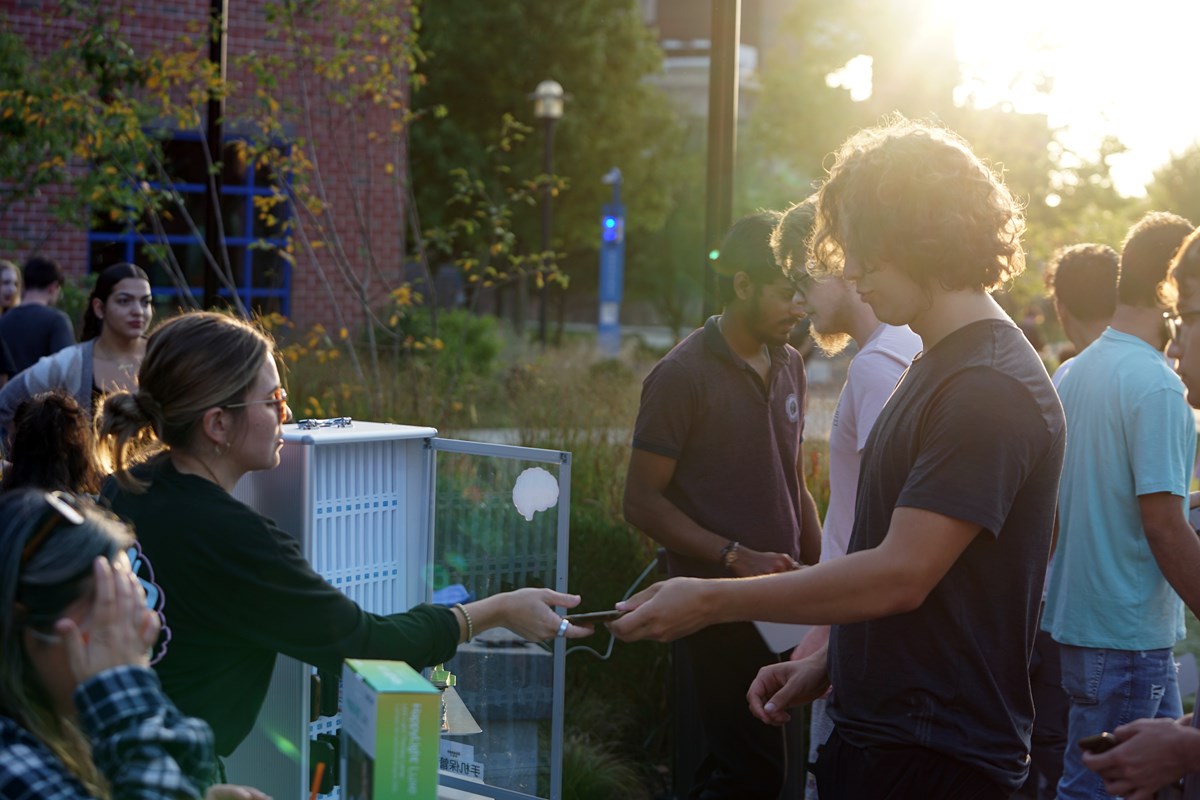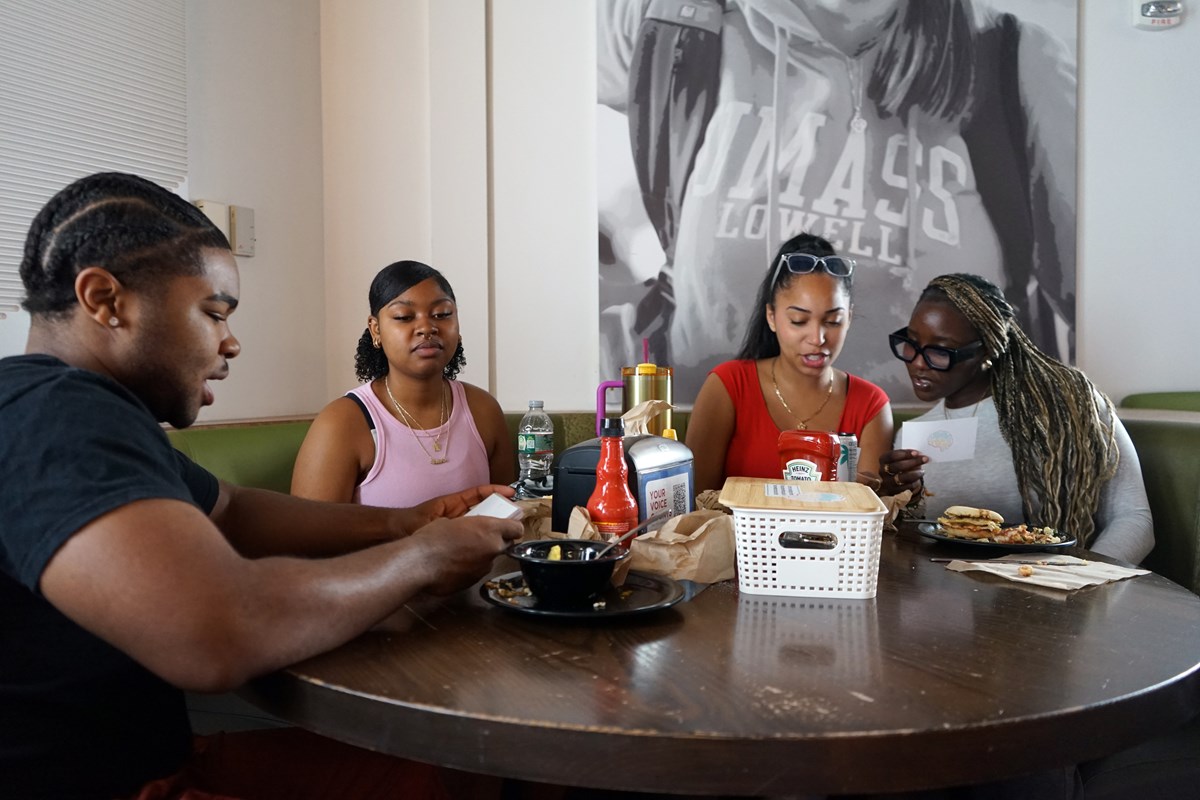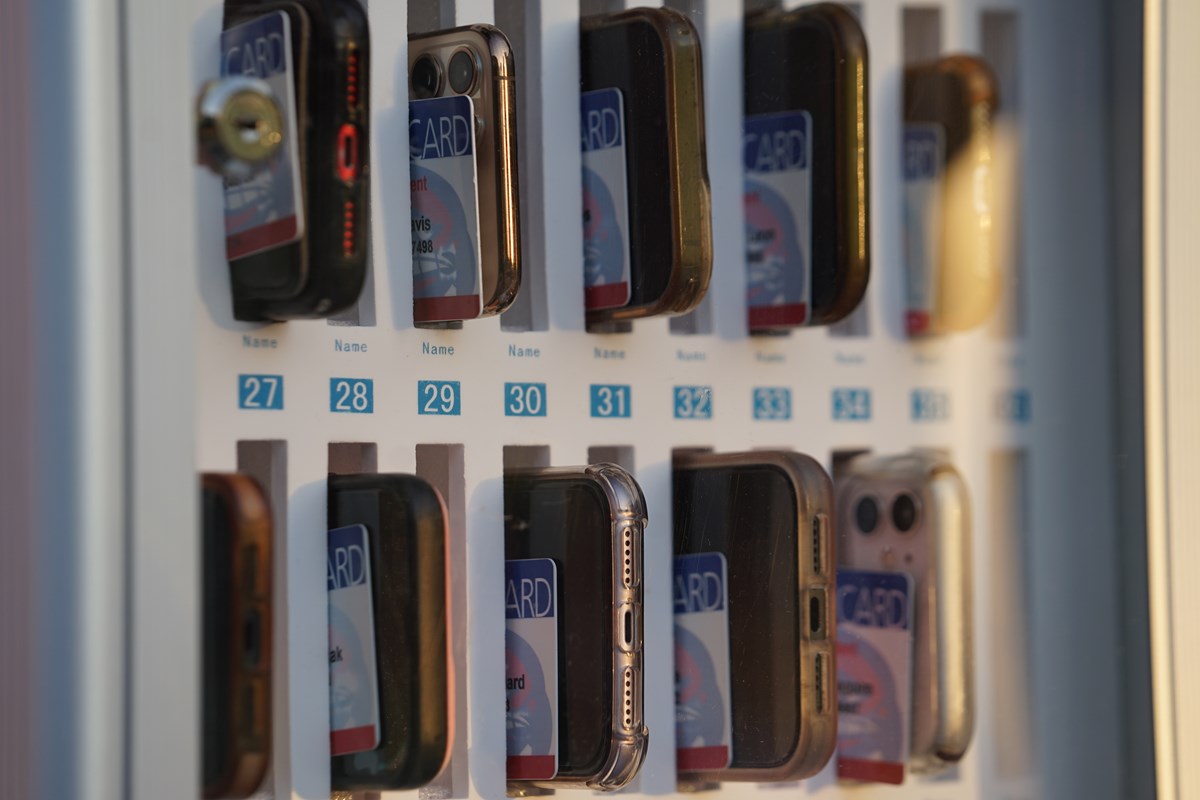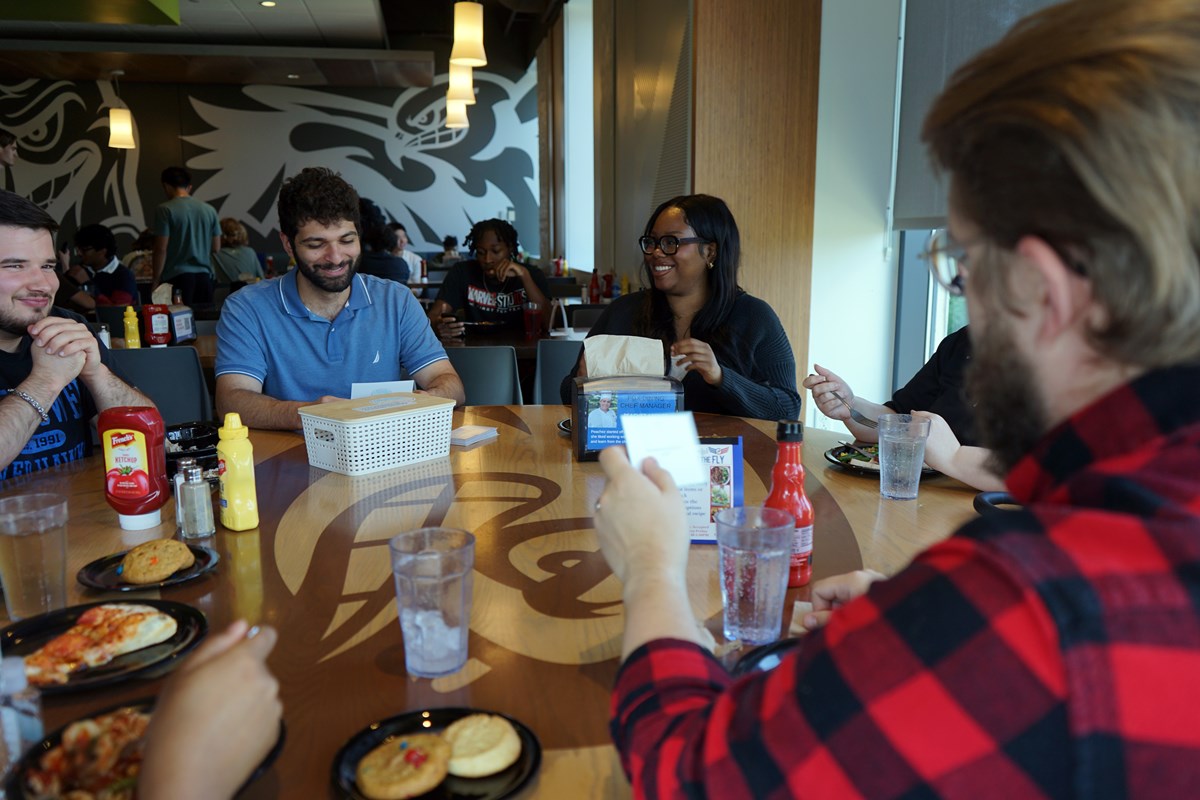New Digital Wellness Campaign Helps Students Connect IRL
 Image by Ed Brennen
Image by Ed Brennen
09/18/2024
By Ed Brennen
Sophomore business major Chidalu Onwuama was waiting in line for an omelet at Fox Dining Commons on a recent Wednesday morning when some friends invited him to join their table. When he sat down, he saw that his friends were reading questions to one another from cards.
“What’s the most exciting thing you’ve done since starting college?”
“What kind of challenges have you faced so far?”
“Have you found any favorite study spots around campus?”
Onwuama also noticed that his friends’ phones were stacked inside a white plastic basket in the middle of the table. On the lid of the basket was a sticker that said, “Unwind Your Mind.” Onwuama added his phone to the basket, grabbed a card and joined the exchange.
“It’s good to take your face off the screen for a little bit,” Onwuama said before busing his tray and heading to class. “Each card sparked a new discussion, and some fruitful conversations came from it.”
Unwind Your Mind is a new digital wellness campaign launched this fall by the Office of Student Life & Well-being. The brainchild of Asst. Director Hannah Monbleau, it is a multipronged effort to encourage students to set boundaries with their phones and laptops and connect with one another.
“Students are always on their phones and connected to technology,” Monbleau said. “It’s a Catch-22, because it’s so ingrained in our lives, and sometimes it’s OK to take a break and scroll through TikTok for five minutes. But when it becomes two hours of doomscrolling, that becomes unhealthy.”
 Image by Ed Brennen
Image by Ed Brennen
“It helped me talk to more people, because I couldn’t rely on my phone to sit down and scroll,” said Jacob Miller, a first-year computer science major from Middleton, Massachusetts, who won a Hatch alarm clock for handing over his phone before a comedy show at University Crossing.
At a back-to-campus bingo night outside the Campus Recreation Center, dozens of students left their phones in the Unwind Your Mind box as they grabbed their bingo cards and played for River Hawk Dollars.
“I think it’s a great idea,” said Kielyn DeMoura, a first-year nursing major from Ashburnham, Massachusetts. “Especially at social events like this, if people are tied to their phone, they’re not really meeting new people. So it’s nice to be disconnected from the phone and actually focusing on the people that are here.”
“It is a little weird at first not having your phone, but it’s a good idea,” added Amaya Samuel, a first-year nursing major from Braintree, Massachusetts. “You get a second to think and be with friends.”
 Image by Ed Brennen
Image by Ed Brennen
Manning School of Business adjunct Maria Matarazzo is not only trying the boxes in her two sections of Professional Communications this fall, but she is also making them part of the curriculum. She is requiring students to check in their phones for the first half of the semester, as they monitor the impact on their learning and read assigned articles about the growing movement to ban phones in schools. At the midpoint of the semester, students will vote on whether they want to continue with the no-phone policy.
Besides making students aware of the mental health consequences of phone use, Matarazzo wants them to think about the issue as future business leaders.
“They will be crafting policies for their organization, so they're going to have the experience of looking at data, articles and research and then assessing whether a policy is needed or not,” said Matarazzo, who notes that many companies are instituting a no-phone policy during meetings.
“I’m very curious what they decide,” Matarazzo said. “I believe that after the initial shock and withdrawal, they're going to find themselves more focused because they're not thinking about their phone. And when you unplug, you are happier.”
 Image by Ed Brennen
Image by Ed Brennen
“The other day, I had to ask my freshman section to settle down so that we could start class,” Tietchen said. “It’s been years since I’ve actually had to say that at the beginning of a class.”
To help students when they are on their screens, Monbleau’s team has been handing out blue-light glasses at events. They are also posting periodic “scroll break” reminders on the Student Life & Well-being Instagram.
“Our office focuses on the eight dimensions of wellness, and digital wellness seems to be right at the center of all of them because it impacts academics, social, emotional and mental health,” said Montbleau, who has been thrilled with the participation of students and faculty, as well as the partnership with Aramark, which manages University Dining.
Back at the Fox Dining Common, junior business major Lexi Ikonya took another card from the Unwind Your Mind basket and posed a question to her friends: “What class are you looking forward to most this semester?”
“As college students, we’re on our phones or laptops 24/7,” said Ikonya, who is from Worcester, Massachusetts. “It’s good to get a break from all that blue light and just have a real conversation.”
